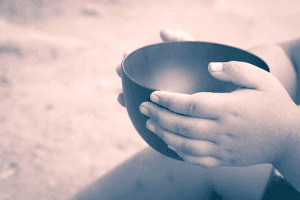SFH MNCH Dissemination, Gombe State.
20th August, 2019 – Society for Family Health (SFH) in partnership with the Gombe State Primary Health Care Development Agency (GSPHCDA) and other partners disseminate the Maternal, Newborn and Child Health (MNCH) Intervention Achievements in Gombe State

The Society for Family Health and other grantees of the Bill & Melinda Gates Foundation (BMGF) led by the Gombe State Primary Healthcare Development Agency (GSPHCDA) conducted a dissemination event to share experiences, pitfalls and achievements that have led to the success of the Maternal Newborn and Child Health (MNCH) intervention in Gombe state. The dissemination was necessary to discuss policy directions for MNCH towards making Village Health Workers the lowest cadre of healthcare delivery personnel in the state.
The Village Health Worker (VHW) project was the fulcrum of the Maternal Newborn and Child Health project in Gombe state. The project is the first government-led and owned village health workers program in Nigeria and was implemented in 57 priority wards of 11 LGAs in Gombe State. The scheme improved access to MNCH services, bridged gaps in Human Resource for Health (HRH) especially at the Primary Health Care Centers (PHCC), increased commodity availability, health promotion and effective behaviour change at the community, PHC and government levels.
The MNCH intervention in Gombe state began as a learning project in 2009. It was subsequently refined and re-redesigned over the years using evidence and learnings to maximize impact and foster sustainability. The intervention which started as solely community-based was transformed to involve both the demand and supply side and was implemented in partnership with other grantees, following the lead of the Gombe state government. The intervention targeted the proximate causes of maternal and newborn mortality in Gombe namely; low uptake of MNCH services, poor provider attitude and skills, transportation barriers, unavailability of essential lifesaving drugs and poor MNCH behaviours and practices.
At household level during the implementation of the programme, the combined effort of the Village Health Workers (VHWs), support from other community influencers and other resources resulted in enhanced community-based care reaching 53.2% pregnant mothers in the state. As such, 67.7% of mothers visited by VHWs delivered at HFs while 11% of these deliveries were transported by ETS volunteers. VHW coverage increased from 21% in 2016 to 48% in 2018. Percentage of live births in health facilities increased from 48% in 2016 to 61% in 2018. Percentage of women with live birth in the last 12 months knowing at least two danger signs relating to labour and delivery increased tremendously from 49% in 2016 to 73% in 2018.

His Excellency, The Executive Governor of Gombe State Alhaji Muhamadu Inuwa Yahaya, gave a goodwill speech during the dissemination in the state.
He said, “Until we scale up and ensure we bring the MNCH intervention to all the 114 wards in Gombe state, we will not rest. The GSPHCDA is now rightly positioned to maximize the gains of the Village Health Worker scheme. It is also important for us to have an encompassing development agenda to improve the lives of Gombe state indigenes because if we solve the problem of Gombe, we solve the problem of the Northeast”
The Deputy Director, Health and Nutrition of the Bill & Melinda Gates Foundation Dr Caroline Jehu-Appiah also notably mentioned “We are enthusiastic to hear about the ambitions of the new government and we are happy to support them”

The Managing Director of SFH, Dr. Omokhudu Idogho expressed the need to institutionalize the engagement of VHWs as lowest level healthcare providers in the state, stating “if we must take MNCH interventions to the next level, we must deploy the use of innovative health financing, integrate community care (IRMNCAH+N) in alignment with the national Community Health Influencers, Promoters, And Services Program (CHIPS) and institutionalize the engagement of VHWs as lowest level healthcare providers in the state.”
One of the project beneficiaries Hajara Abdulahi from Rugga Funakaye LGA gave a testimonial in which she said “I live in the Village, rear my animals and come to town to sell Fura de nunu. The Village Health Workers found me and I was able to have my last 2 children in a health facility with all the support I needed.” (Translated from Hausa)
One of the key lessons learned from the programme is the fact that active community and government ownership/leadership is essential to the success and sustainability of community-level interventions. As such, SFH remains committed to improving health outcomes for women and children through effective coverage of life-saving interventions in Nigeria.

